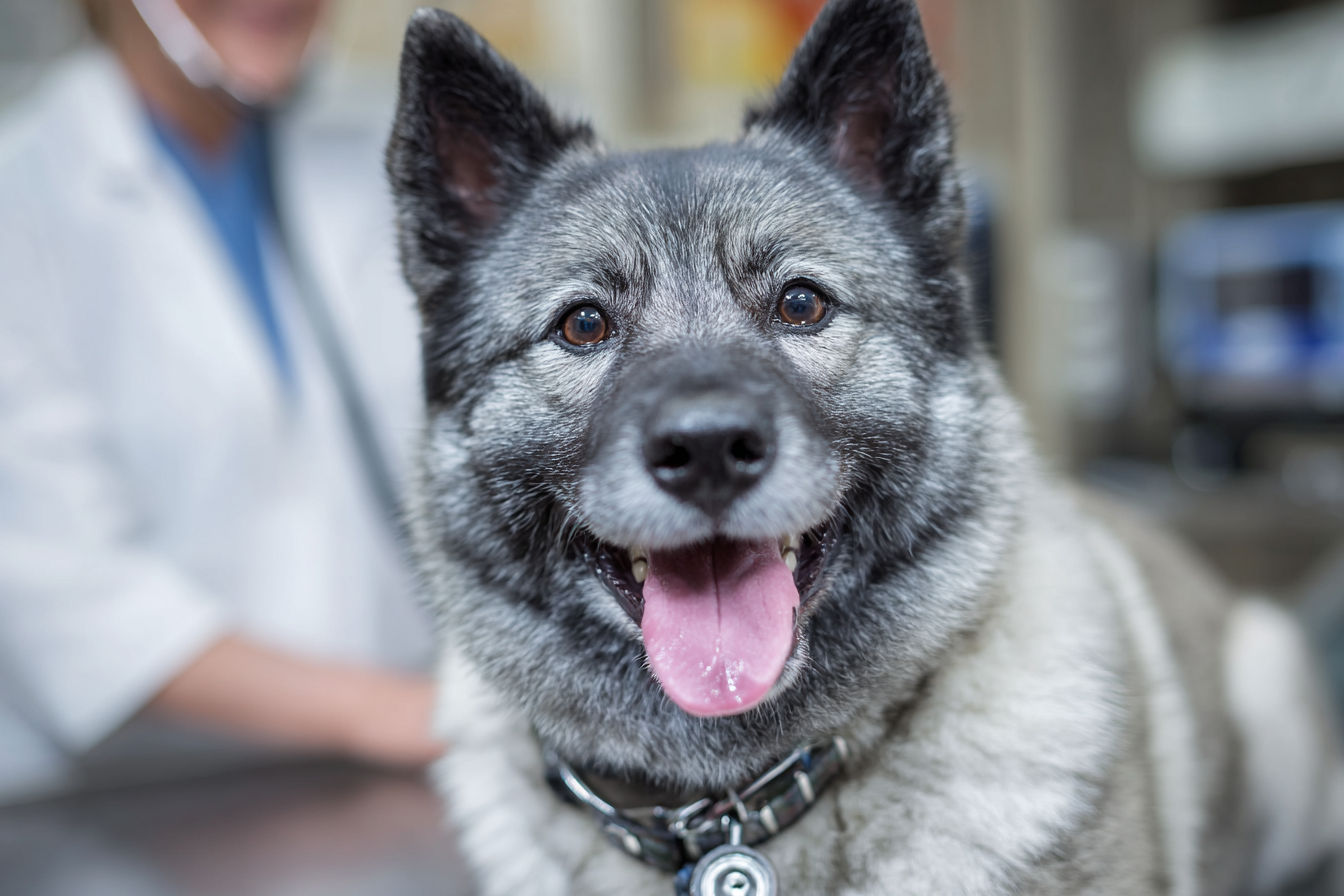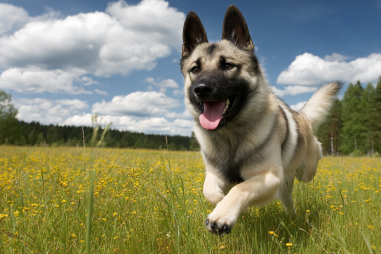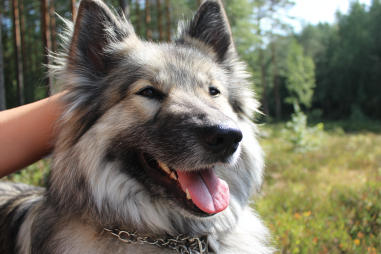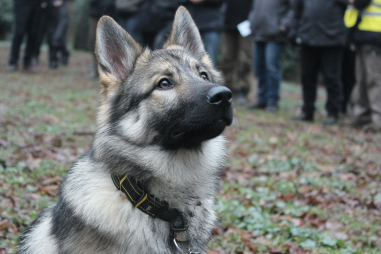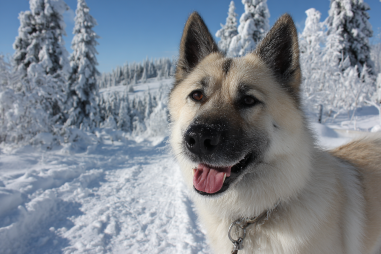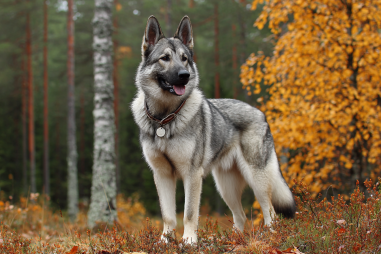Norwegian Elkhounds are a robust and spirited breed, cherished for their loyalty and versatility. However, like all breeds, they come with their own set of health concerns. Understanding these common health issues, recognizing symptoms early, and ensuring proper preventive care are essential for keeping your Elkhound happy and healthy throughout its life. This guide will walk you through the key areas of health care tailored to the unique needs of your Norwegian Elkhound.
Typical Health Problems in Norwegian Elkhounds
Norwegian Elkhounds are generally healthy dogs, but they are prone to certain breed-specific conditions. Being aware of these common health problems can help in early detection and management:
- Hip Dysplasia: This genetic disorder affects the hip joints, causing arthritis and mobility issues. Hip dysplasia is a common problem in many medium to large breeds, including the Norwegian Elkhound.
- Progressive Retinal Atrophy (PRA): PRA is a degenerative eye disease that results in blindness. It typically starts with night blindness and progresses to complete vision loss.
- Hypothyroidism: A condition where the thyroid gland produces insufficient hormones, leading to symptoms like weight gain, lethargy, and skin problems.
- Renal (Kidney) Conditions: Norwegian Elkhounds can be prone to renal issues, including renal dysplasia or kidney failure, particularly as they age.
- Epilepsy: Seizures can occur in some Elkhounds, usually starting between 1 and 3 years of age. Epilepsy can often be managed with medication.
Knowing these common concerns equips you to monitor your dog for early signs and consult your vet when needed.
Signs and Symptoms to Watch For
Early detection significantly improves outcomes when dealing with health problems. It’s important to observe changes in your Norwegian Elkhound’s behavior, appearance, or physical functions. Watch for these symptoms:
- Difficulty or reluctance when moving, jumping, or climbing stairs (possible hip or joint issues).
- Excessive scratching, hair loss, or skin sores (may indicate allergies, hypothyroidism, or infections).
- Sudden weight gain or weight loss without changes in diet or exercise.
- Changes in appetite or drinking habits.
- Vision changes such as bumping into objects or hesitation in low light (signs of Progressive Retinal Atrophy).
- Frequent urination, difficulty urinating, or unusual urine color (kidney or bladder issues).
- Seizures, fainting episodes, or unusual disorientation (possible epilepsy or neurological disorders).
- Lethargy, excessive fatigue, or overall change in energy levels.
If you notice any of these symptoms, it’s vital to schedule a veterinary appointment promptly. Early intervention can prevent further complications.
The Importance of Regular Vet Checkups
Regular veterinary visits are a cornerstone of maintaining your Norwegian Elkhound’s health. Routine checkups allow your vet to monitor your dog’s well-being, catch problems early, and administer necessary treatments. Ideally, a healthy adult Elkhound should have a vet visit at least once a year, while puppies and senior dogs require more frequent checkups.
During these visits, the vet will perform a thorough physical examination, checking your dog’s weight, teeth, coat, eyes, ears, heart, lungs, joints, and abdomen. They will also update vaccinations, screen for common breed-specific conditions, and discuss any behavioral or health changes you’ve noticed.
For breeds like the Norwegian Elkhound, your vet may recommend specific health screenings, such as hip evaluations or eye examinations, to proactively address hereditary issues.
Preventive Care and Vaccinations
Prevention is always better than cure, especially when it comes to your beloved pet’s health. Norwegian Elkhounds benefit greatly from a well-rounded preventive care routine:
- Vaccinations: Essential vaccines protect your dog from contagious and potentially deadly diseases such as rabies, parvovirus, distemper, and Bordetella (kennel cough). Follow your vet’s vaccination schedule closely.
- Parasite Control: Regular treatments for fleas, ticks, and intestinal parasites keep your Elkhound comfortable and prevent diseases transmitted by these pests.
- Dental Care: Dental disease can lead to serious health issues. Regular brushing at home and professional cleanings as needed will promote good oral health.
- Weight Management: Maintaining an ideal weight through diet and exercise helps prevent joint stress, diabetes, and other complications.
- Routine Grooming: Brushing your Elkhound regularly not only keeps their double coat healthy but also gives you the chance to check for lumps, bumps, or skin abnormalities early on.
Nutrition and Exercise for Health Maintenance
A balanced diet and consistent exercise are fundamental to your Norwegian Elkhound’s long-term health. Being an active and energetic breed, they thrive on regular physical and mental stimulation.
Nutrition: Choose a high-quality dog food that meets your Elkhound’s life stage, weight, and activity level requirements. Some key considerations include:
- Proteins for muscle maintenance and overall vitality.
- Fatty acids like Omega-3 and Omega-6 for skin and coat health.
- Essential vitamins and minerals to support immune function.
- Appropriate calorie levels to avoid obesity, which stresses joints and organs.
Consult your vet to customize a feeding plan and determine if supplements are necessary, especially if your dog has a health condition.
Exercise: Weekly activities such as daily walks, hiking, agility training, or interactive games keep your Norwegian Elkhound physically fit and mentally stimulated. Exercise also helps manage weight and keeps muscles and joints strong.
Keep in mind that especially in hot or cold weather, exercise duration and intensity might need adjusting to ensure your dog’s comfort and safety.
When to Seek Emergency Care
While routine care is important, knowing when to act quickly can be lifesaving. Seek immediate veterinary attention if your Norwegian Elkhound shows any of the following emergency signs:
- Sudden difficulty breathing or choking.
- Uncontrolled bleeding or severe wounds.
- Severe vomiting or diarrhea, especially if it contains blood.
- Collapse, seizures that last more than a few minutes, or repeated episodes.
- Signs of poisoning such as drooling, shaking, or disorientation.
- Swollen abdomen or signs of pain like whining or aggression on touch.
- Extreme lethargy or unresponsiveness.
When in doubt, err on the side of caution and contact your vet or an emergency animal hospital. Prompt care can make all the difference in outcomes.
By understanding these health issues and providing attentive care, you can help your Norwegian Elkhound enjoy a full, active, and healthy life. Regular veterinary visits, a proper diet, consistent exercise, and awareness of warning signs all contribute to your dog’s well-being. Your loyal companion deserves the best care, and with a little effort and knowledge, you can be confident in meeting their needs every step of the way.

